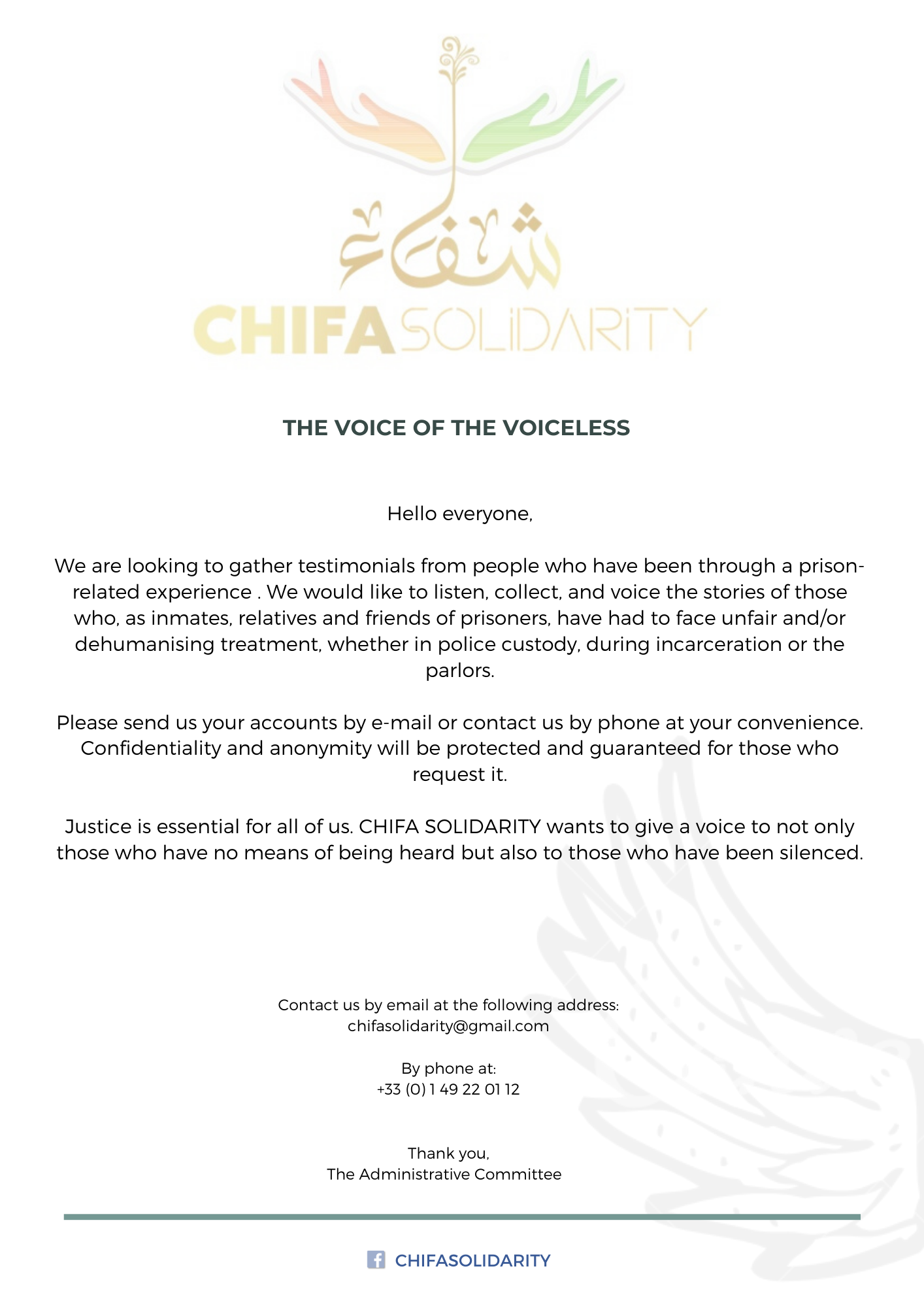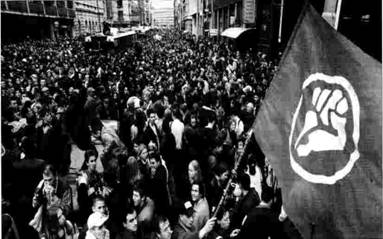This spiritual essence of Islam is not to be found in the commercial consumerism that the capitalist civilization is trying to impose; it will be found in the remembrance of the Creator. A return to the central essence of Ramadan is the only way for Muslims to recover the liberating and creative breath of the original Islam.
"It was the month of Ramadan in which the Quran was [first] bestowed from on high as a guidance unto man and a self-evident proof of that guidance, and as the standard by which to discern the true from the false". Quran 2:185 (1)
During the past several years, the month of Ramadan has become a time for intensive marketing campaigns aimed at fuelling the desires of Muslim consumers to a variety of products.
Couscous makers, green tea, halal ready meals, to "chorba" spices, the mass retail heavyweights display products specifically targetted to a Muslim clientelle.
TV ads are broadcast on national TV while poster campaigns and flyers are on the rise.
This display of products with a "Muslim identity" reveal the stakes are high in the so-called "Islamic" market.
The halal meat market in France estimated a profit of 5.5 billion euros for 2010. From this amount, 4.5 billion euros were spent by average households.
Internationally, the profit margin is estimated at almost 500 billion euros. In Europe, profits are on the increase by 15% yearly over the past several years.
For a European economy that is experiencing a decline, the new "Islamic" market is a windfall for a capitalist system permanently in the pursuit of new markets for the maximization of profits.
The expansion of markets via the message of Islam is part of the global reification process that is peculiar to the capitalist system. The "Islamic" market has become a tool to expand the capitalist sphere towards a non-commercial space: the space of Islam, its collective imagination and its spirituality.
Studied by Georg Lukacs, the reification process attempts to transform the entire world of material and spiritual dimensions into a commercial object which in turn submits to capitalist domination.
It spreads the rules of the market to non-commercial spheres while simultanously destroying cultural diversity. It does away with distinctive identities, annihilates critical thought and eradicates any religion and spirituality.
In this way, capitalism carries the seeds of destruction and death of all non-commercial spaces.
As part of this reification process, the market expansion through the message of Islam can only occur by giving something an "Islamic" look without revealing its destructiveness to the believer. This image of Islam is used outside of the context of Muslim culture and spirituality.
Capitalism transforms the believer from someone bearing a culture and spirituality into a consumer projecting images of "Islam".
It ends up distorting the very essence of Islamic spiritual identity; the act of consumption transforms the merchandise into an intermediary between the believer and his Creator, implicitly presented as an act of devotion. In reality, this transformation is a false "spirituality".
Islam becomes revamped from an act of spirituality into an object of consumption. The object and the merchandise become an object of worship. This reified Islam is thus integrated into capitalist temples, such as superstores and shopping centers. It is also transformed through jewelery, clothing apparel and food.
Emptied of spiritual or civilizational content, this consumer brand of Islam can be bought, consumed or sold.
There appears to be a contradiction between Muslims living in France vs. the "merchants of Islam". This contradiction is not based on the questioning of the reification logic that is transforming Islam into a merchandise. This logic is often not even perceived because the discourse effectively conceals the commercialization of the world through capitalism.
In fact, there are those who promote this logic in the name of some kind of "Islamic theology of prosperity" giving "Islamic" support to capitalism. The contradiction between some Muslims and the "merchants of Islam" is mainly expressed through the representations of Muslims living in France.
Consumerism as an indicator of alienation
The representation of Islam and Muslims, as suggested by the "merchants of Islam," has often been the mark of an orientalist folklore. The advertizing flyers with "Ramadan specials" make mention of "oriental" week or "the one thousand and one flavors" and use an Arabesque typography to give an exotic look to their ads. The products offered are generally reminiscent of Arab or Maghrebi roots. The oriental pastries, the 5 kg bags of semolina, the canned "mechouia" salads but also the tea sets and other "couscous" dishes all create a link between Muslims living in France and objects identified as Arab or Maghrebi.
Among Muslims living in France and for those who define themselves as "French citizens of Muslim faith" or as "French Muslims", the link with the Arab world or the Maghreb is problematic and questionable. They see themselves as French first, despite their origins, and refuse the usage of a typography and the emphasis on products referencing Islam and Muslims to elements that are alien to French culture.
By rejecting any cultural specificities linked to Arab culture, "French Muslims" want to define their identity solely in reference to a citizenship and to Islam, reduced to its dimension of worship.
In practical terms, they recognize themselves in products that are clearly identified as French, under the condition that they respect the Islamic prescriptions, rather than in products identified as Arab or Maghrebi.
The rejection of an identity dictated from the outside is easily understandable. However, the purely reactive stance which consists of defining oneself solely in response to issues imposed by others is in itself a symptom of a deep malaise. It reveals an inability to construct one’s own identity in an autonomous way, by auto-defining oneself.
It can also be a sign of someone in a dominated status who is incapable of standing as an autonomous and independent being. The Muslim community defines itself solely in response to a dominate ideology which, in the end, dictates its actions and reactions. Ibn Khaldoun once said “the defeated always imitate the victorious. ” French Muslims are striving to immitate the victories of the ruling class in their societies.
The rejection of cultural elements identified as Arab or Maghrebi, to a large extent, are dependent on the negative image these cultures have within the dominant ideology. This is pervasive in France because of the orientalist and colonialist traditions of the country.
There is the dominant orientalist viewpoint that Arab culture is violent and chauvinist. French Muslims are striving to demonstrate that Islam and Muslims are not linked to these negative cultural elements.
This attempt to distance themselves from identity elements that are perceived negatively by the dominant ideology is even stronger when "French Muslims" try to distance themselves from the image of the immigrant worker, who represents the real vanquished in the capitalist western society.
Indeed, on the one hand, a part of the Arab world (essentially the Gulf petro-monarchies because of their image of "Islamic version" of "capitalist modernity" ) is portrayed in a favourable light, but on the other hand, the immigrant worker, who is dominated culturally and economically, represents one of the figures that the "Muslim French citizens" refuse to be associated with. In the prevailing representations, the immigrant worker is portrayed as a "negative being" who does not have a command of the language or the cultural codes of French society and who belongs to a lower economic class. In order to distance themselves from this "negative being", the "French Muslims" display their French identity and culture in contradiction to the immigrant of exogenous culture. At the consumption level, they want to consume products or look for items that are part of the traditional or cultural eating habits of the immigrant worker.
The reactive positioning of "French Muslims" underlines their alienation with regards to the dominant culture and how they define themselves. Though the Arab and Maghrebi cultural elements are fully part of the cultural identity of the Muslim community living in France, born from the Arab-Muslim immigration since the early twentieth century, these "French Muslims" still strive to deny part of their history and identity because they are dependent on the dominant representations which permeate French society. The reactions to the products offered during the month of Ramadan are an indicator of the alienation of a dominated community that is unable to define itself in an independent manner, based on its history and heritage.
In view of the reification of Islam by the capitalist system, in view of the transformation of the fast of Ramadan into a consumerist celebration and in view of the alienation of a community unable to be in control of its identity, the spiritual essence of fasting has the power to liberate oneself from these different structures of domination weighing down the Muslims. This spiritual essence of Islam is not to be found in the commercial consumerism that the capitalist civilization is trying to impose; it will be found in the remembrance of the Creator.
A return to the central essence of Ramadan is the only way for Muslims to recover the liberating and creative breath of the original Islam.
(1) From "The Message of The Quran", by Muhammad Asad
Translated from French by Youssef Islah






Alsalam alaykum,
I personally don’t understand the negative look toward capitalism. Although, it might be correct that people have taken a cultural look toward Ramadan,rather than that of getting to know God and aspire for him, which I agree with. Why is it so wrong to sell a desirable item for people who seek it? everybody wins in the free market. the consumer get what they want at a reasonable price if the the competition is good. and the merchant earns an honest living.
Also, I don’t think true free market capitalism existed for a long time since the EUs collectivist agenda existed.
Muslims are amongst the biggest capitalists and consumers in the world; look at the rich arab countries. They know how to make and spend money, unfortunately not so good how to share.